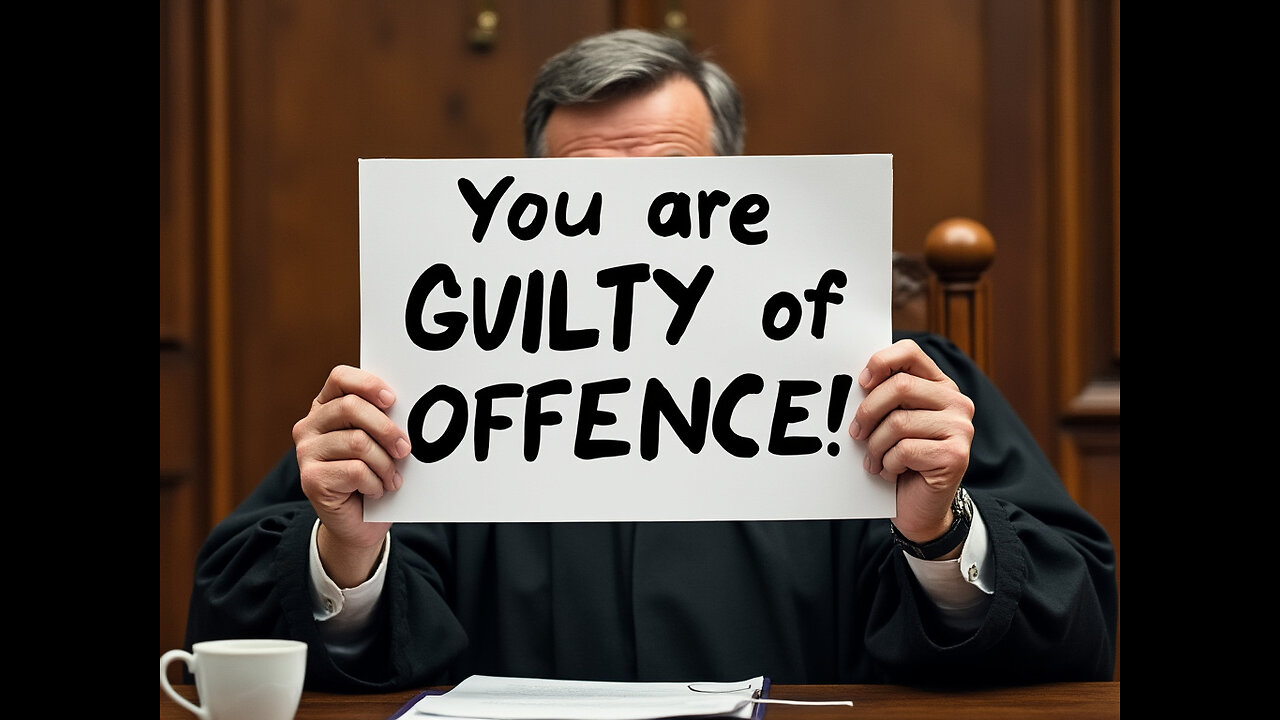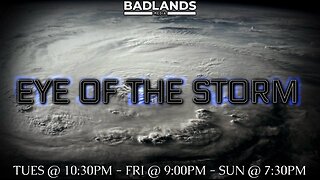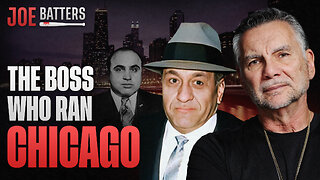Premium Only Content

Hate Speech...
The Freedom and Right to Offend: Where Do We Draw the Line?
In democratic societies, the freedom of expression is often lauded as a cornerstone of individual liberty. Yet, as modern discourse becomes increasingly polarised, the question arises: how far should this freedom extend, especially when it comes to the right to offend? Should it be a criminal offence if one person’s expression offends another? And what happens when taking offence becomes a tool for silencing others through legal or social repercussions?
The Right to Offend and its Boundaries.
Freedom of expression implies the freedom to voice one’s beliefs, even if they are unpopular or cause discomfort. This principle has underpinned democratic progress, enabling critical conversations that drive societal change. From literature that critiques regimes to the voices advocating for equality, the right to offend has paved the way for more inclusive and free societies. However, as with any freedom, it comes with boundaries. Incitement to violence, hate speech, and defamatory language, for example, are typically excluded from protection as they directly harm others or incite harm.
But beyond these clear-cut cases lies a grey area. Should mere offence—causing emotional distress or disapproval—be sufficient to justify legal action? This question is increasingly relevant in today’s culture, where public and social media debates often pivot on the outrage sparked by controversial opinions.
Offence as a Weapon.
The act of feigning outrage to provoke consequences for others is becoming more common. By claiming offence and appealing to the collective conscience or legal bodies, individuals and groups can leverage this as a powerful tool to silence dissent or opposition. Ironically, this form of offence-taking often leads to an outcome where the person claiming harm, by instigating social or legal action, ends up causing offence and distress themselves.
This creates a paradox: in trying to punish someone for offending them, the offended party may engage in actions that are equally offensive to the other party’s right to free expression. Such dynamics can turn free speech into a zero-sum game, where offence becomes currency and public dialogue is stifled by a fear of retribution. It shifts the focus from the substance of arguments to emotional reactions, altering the fundamental balance of rational debate and societal growth.
The Consequences of a Hyper-Offended Society.
If society were to reach a point where taking offence alone could trigger criminal proceedings or widespread repercussions, the implications would be profound. The space for genuine dialogue and learning would shrink. Rather than an environment of open discussion, people would self-censor, wary of the potential fallout of expressing themselves. This could lead to a culture where only a narrow range of 'acceptable' opinions could be shared without fear of reprisal.
When discourse is governed not by principles but by the most sensitive or strategically outraged voices, society risks fostering a superficial peace—one maintained not by mutual respect but by fear of retribution. The ability to engage in honest, constructive disagreements is crucial for resilience and innovation. Without it, cultures can become stagnant, ruled by a conformity that stifles progress and creativity.
Navigating a Path Forward.
Finding a balance between protecting individuals from genuine harm and preserving the right to free expression is essential. While societies must safeguard against hate speech and incitement to violence, it is equally important to resist creating an environment where individuals weaponize their feelings of offence to silence others.
Education plays a vital role in fostering resilience and critical thinking. Encouraging individuals to distinguish between speech that challenges them and speech that genuinely seeks to harm can cultivate a more mature, nuanced culture. Furthermore, developing robust platforms for dialogue and discourse that prioritise empathy and understanding, rather than knee-jerk condemnation, can prevent society from descending into a battleground of outrage and counter-outrage.
In Conclusion.
To criminalise offence as an act could lead society down a slippery slope toward censorship and division. While speech should have reasonable limits to prevent real harm, it’s crucial that these limits are not set by emotional reactions alone. Offence is often subjective, and if allowed to be weaponized, it could erode the very fabric of free speech and open dialogue that underpins healthy democracies. The challenge lies in protecting individuals while also nurturing a society that values, rather than fears, the diversity of thought and expression. Only then can we avoid a future where silence becomes the safest and only option.
SOURCED FROM - https://x.com/KingArthurII2/status/1856647083484164574
-
 6:21:08
6:21:08
Odd Man Out
7 hours agoLet's play the overlooked absolute GEM of a game, Saint's Row IV
54K3 -
 LIVE
LIVE
SpartakusLIVE
9 hours agoDuos w/ Woes || Friday Night HYPE
827 watching -
 LIVE
LIVE
CHiLi XDD
7 hours agoPart 2 F Em UP Friday!
383 watching -
 5:14:28
5:14:28
FreshandFit
7 hours agoCall-In Show
60.3K20 -
 3:00:07
3:00:07
JustPearlyThings
7 hours agoWhy Do Modern Women Think Disrespecting Their Husbands Publicly Is Funny? Call-In Show | Pearl Daily
65.6K23 -
 1:35:17
1:35:17
Badlands Media
23 hours agoEye of the Storm Ep. 241
82.4K31 -
 2:05:58
2:05:58
TimcastIRL
8 hours agoTrump Just REVOKED Legal Status Of 530,000 Migrants, Deportations NOW w/ Alex Stein | Timcast IRL
183K266 -
 3:39:01
3:39:01
I_Came_With_Fire_Podcast
12 hours agoCHINA MILITARY PURGE | TESLA OWNERS DOXXED | NGAD F-47
39.1K14 -
 5:44:43
5:44:43
Shield_PR_Gaming
12 hours agoSome Gray Zone Warfare with Followers & more games!
62.3K3 -
 31:38
31:38
Michael Franzese
8 hours agoTony Accardo: The Genius That Built Chicago’s Most Powerful Empire
64.6K2